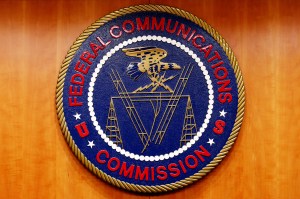It could soon be easier to talk yourself off the ledge.
The Federal Communications Commission announced Thursday that it is green-lighting a three-digit emergency number for suicide prevention.
FCC Chairman Ajit Pai’s said he is following a staff recommendation for establishing a 911-style code, suggesting 988, to reach the network of the National Suicide Prevention Lifeline: 1-800-273-8255 (TALK).
“There is a suicide epidemic in this country, and it is disproportionately affecting at-risk populations, including our Veterans and LGBTQ youth,” Pai said in a statement. “Crisis call centers have been shown to save lives. This report recommends using a three-digit number to make it easier to access the critical suicide prevention and mental health services these call centers provide.”
The Lifeline program, funded through the US Health and Human Services Department, consists of a network of 163 crisis centers routing calls from anywhere in the US to the closest certified center. In 2018, trained counselors answered more than 2.2 million calls and 100,000-plus online chats.
Pai’s statement was delivered in conjunction with a report to Congress, delivered Wednesday to five committees with jurisdiction over telecommunications, health and veterans affairs, Roll Call reports.
The FCC report detailed why directing suicide hotline calls through the current 911 infrastructure just isn’t feasible for these “life-saving resources.”
“For example, calls to 911 average 2 minutes or less, and 911 call-takers focus on identifying the nature of the emergency and the caller’s location to enable prompt dispatch of appropriate emergency response,” according to the report. “Thus, the 911 system is not well-suited to provide suicide prevention counseling or to respond to calls that can be handled through conversation with a trained mental health professional rather than dispatching first responders.”

The 988 proposal seals one of the final legislative goals of long-serving lawmaker Sen. Orrin Hatch.
The Utah Republican waged a high-profile push to get the House to act on the Senate legislation following the 2018 suicide deaths of culinary TV icon Anthony Bourdain and fashion designer Kate Spade.
“The national suicide hotline … is not an intuitive or easy number to remember, particularly for those experiencing a mental health emergency,” Hatch said when he introduced the bill on the Senate floor in May 2018. “I believe that by making the National Suicide Prevention Lifeline system more user-friendly and accessible, we can save thousands of lives by helping people find the help they need when they need it most.”
The House passed the The National Suicide Hotline Improvement Act in June 2018, and President Donald Trump signed it into law in August of 2018, clearing the way for Thursday’s FCC announcement.
The next step: Pai “is committed to launching a rulemaking proceeding [which] would collect further public comment from all interested stakeholders on the findings in the report.”








